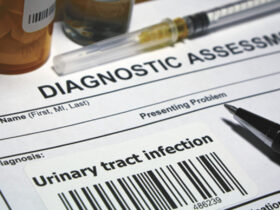By Dr. Graciela Garton
 When a patient receives a serious medical diagnosis like cancer, it can trigger a flood of questions – how the disease progresses, what may stop its spread, how to cope with the emotions that accompany diagnosis and treatment, and what important healthcare decisions lie ahead.
When a patient receives a serious medical diagnosis like cancer, it can trigger a flood of questions – how the disease progresses, what may stop its spread, how to cope with the emotions that accompany diagnosis and treatment, and what important healthcare decisions lie ahead.
For most, there are a variety of resources available where answers may be found. These include in-person support groups, online educational videos and conversations with one’s own care team. Unfortunately, few are designed to help those with a hearing impairment or language barrier, including foreign language speakers. As a result, these individuals may struggle to navigate a healthcare system that is designed for those without communication challenges.
Studies report that patients with hearing or language impairments often have profound gaps in knowledge about their disease, medications, treatment options, procedures and risk factors. And yet, living with these unanswered questions can exacerbate the emotional distress that often accompanies a tough diagnosis.
Additionally, studies show that patients with hearing or language impairment commonly experience persistent breakdowns in communication with their health care providers. Sadly, many find that their providers will not accommodate their requests for ASL interpretation within clinical settings. Instead, patients are expected to practice lip reading or note taking for comprehension.
This sends the message that providers don’t want to deal with them – and breaks federal law. Those with a hearing impairment are legally entitled to adequate language accommodations, thanks to provisions in the Americans with Disabilities Act (ADA).
Partnership Provides Access to Communication Resources
At Advocate Radiation Oncology, we know every patient deserves equal access to healthcare communication before, during and after a cancer diagnosis. As the region’s premier locally-owned and operated radiation oncology practice, we are passionately dedicated to delivering compassionate care and ensuring that every patient’s treatment experience is customized to their needs.
In order to deliver exceptional healthcare communication for all, Advocate Radiation Oncology is proud to partner with the Sally J. Pimentel Deaf and Hard of Hearing Center (DHHC).
The DHHC’s mission is to empower Southwest Florida’s deaf and hard-of-hearing citizens and their families through education, advocacy and community involvement. The center provides a wide range of services to those with hearing impairments, including support for family members, friends, neighbors, employers and coworkers.
• Sign Language Interpreting Services
• Free Telephone Equipment Loan Program
• Deaf Mentor & Education Program
• (ASL) American Sign Language Classes
• Information/Referral Services
• Outreach Presentations
• Employment Assistance
• Visual Communication Center
• Advocacy
• Adaptive Equipment Sales & Training
Through this partnership, DHHC and Advocate Radiation Oncology are closing the gap for patients with hearing or language impairment by reducing healthcare inequalities.
By connecting patients with the appropriate language assistance and accommodations, our provider-patient conversation can take place with clarity, comprehension and compassion. In this way, Advocate can ensure that the treatment experience is delivered with equal care for all patients.
About the Author
Dr. Graciela Garton is a board-certified radiation oncologist at Advocate Radiation Oncology. For more information, please visit AdvocateRO.com.
Advocate Radiation Oncology
Cape Coral
909 Del Prado Blvd. S
Cape Coral, FL 33990
(239) 217-8070
Bonita Springs
25243 Elementary Way
Bonita Springs, FL 34135
(239) 317-2772
Fort Myers
15681 New Hampshire Ct.
Fort Myers, FL 33908
(239) 437-1977
Port Charlotte
3080 Harbor Blvd.
Port Charlotte, FL 33952
(941) 883-2199
Naples
1775 Davis Blvd.
Naples, FL 34102
(239) 372-2838





